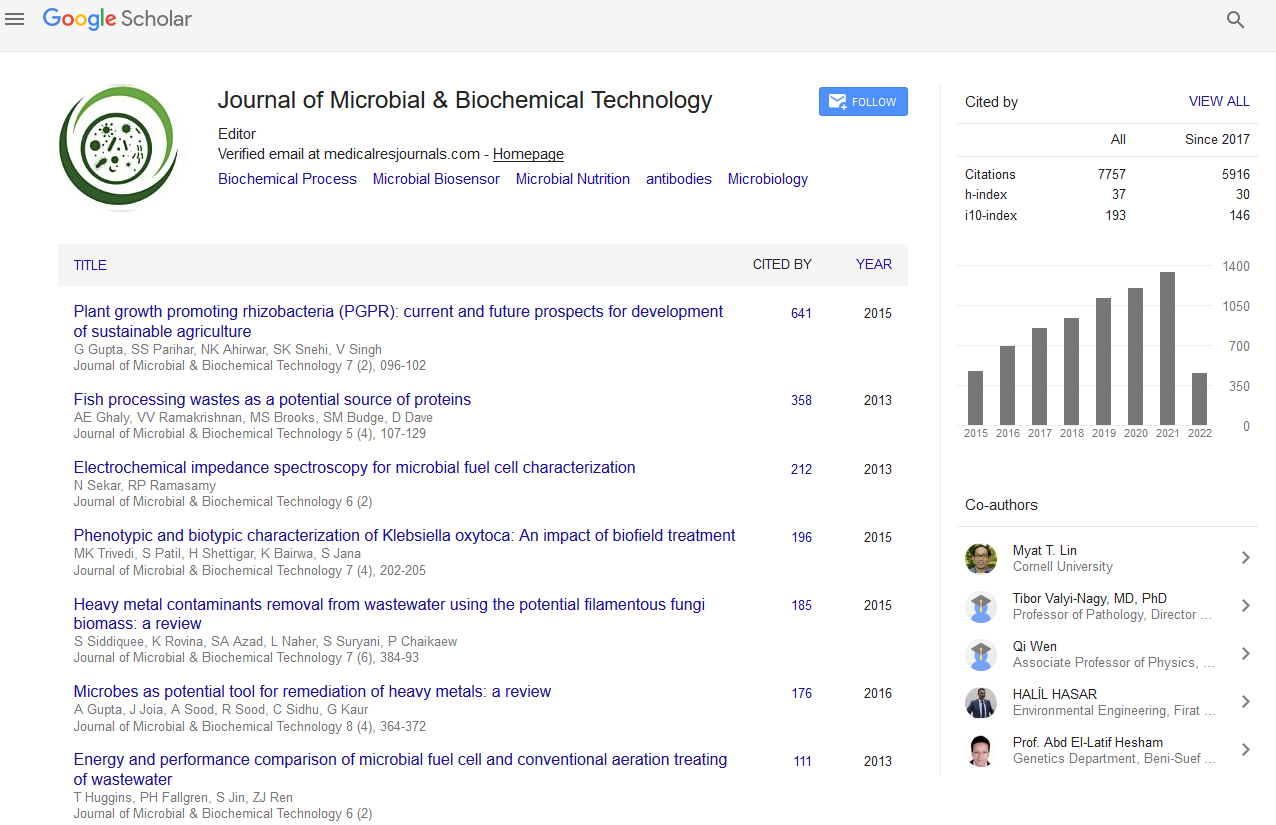PMC/PubMed Indexed Articles
Indexed In
- Academic Journals Database
- Genamics JournalSeek
- Academic Keys
- JournalTOCs
- China National Knowledge Infrastructure (CNKI)
- Scimago
- Access to Global Online Research in Agriculture (AGORA)
- Electronic Journals Library
- RefSeek
- Directory of Research Journal Indexing (DRJI)
- Hamdard University
- EBSCO A-Z
- OCLC- WorldCat
- SWB online catalog
- Virtual Library of Biology (vifabio)
- Publons
- MIAR
- University Grants Commission
- Geneva Foundation for Medical Education and Research
- Euro Pub
- Google Scholar
Useful Links
Share This Page
Journal Flyer

Open Access Journals
- Agri and Aquaculture
- Biochemistry
- Bioinformatics & Systems Biology
- Business & Management
- Chemistry
- Clinical Sciences
- Engineering
- Food & Nutrition
- General Science
- Genetics & Molecular Biology
- Immunology & Microbiology
- Medical Sciences
- Neuroscience & Psychology
- Nursing & Health Care
- Pharmaceutical Sciences
The risk factors for and effects of visceral leishmaniasis in graft and renal transplant recipients
2nd International Conference on Clinical Microbiology & Microbial Genomics
September 16-17, 2013 Hampton Inn Tropicana, Las Vegas, NV, USA
Avelar Alves Da Silva
Scientific Tracks Abstracts: J Microb Biochem Technol
Abstract:
Introduction: Renal transplantation is the most effective therapy in restoring quality of life and productivity of patients with chronic kidney disease (CKD). Brazil has the largest public program renal-transplant in the world, using more than 70% of procedures kidney from a deceased donor. More selective immunosuppression has reduced episodes of rejection and increased graft survival and recipients of kidney. However the transplantation teams and organ recipients face a new challenge: emerging infections caused by opportunistic agents that can compromise this therapeutic success. Visceral leishmaniasis (VL) is a zoonosis caused by the protozoan of Leishmania . It?s endemic in 5 continents and affects the renal-transplant recipients, causing a systemic syndrome with atypical clinical features. Its laboratory diagnosis, risk factors and treatment has not yet known. Objectives: The present study sought to identify the risk factors of visceral leishmaniasis (VL) in renal transplant recipients and analyze the impact of this disease on graft success and patient health. Material and Methods: This retrospective case-control study examined 120 renal transplant patients in an endemic area for visceral leishmaniasis. The treatment group included patients (n=20) who developed VL after transplantation, whereas the control group (n=100) was composed of renal transplant recipients without VL. This study investigated socioeconomic, demographic, and clinical variables as well as laboratory data. A bivariate analysis and a multiple logistic regression were executed to identify potential risk factors. Results: The average time between transplant and Leishmania infection in the treatment group was 29.4 months. Most patients (85%) were cured; the others (15%) died. In 95% of cases, a myelogram was used to identify forms of Leishmania . The potential risk factors for VL identified in renal transplant recipients included bacterial infection after transplantation (odds ratio [OR]=3.00, 95% confidence interval [CI]=0.96-9.37), cytomegalovirus (CMV) infection after transplantation (OR=5.29, 95% CI=1.27- 21.97), living with cats, (OR=5.74, 95% CI=1.15-28.76), and unpaved streets in the neighborhood (OR=2.14, 95% CI=0.71-6.43). Negative Rh factor protected against VL (OR=0.26, 95% CI=0.06-1.02). Conclusion: CMV infection, bacterial infection, or both after transplantation; living with cats; and residing in neighborhoods with unpaved streets increased the risk of VL in renal transplant recipients, whereas negative Rh factor was a protective factor.
Biography :
Avelar Alves Da Silva is a graduate in medicine from Universidade Federal do Piaui (1992). He is currently a medical Nephrologist of the University hospital of the Federal University of Piaui. He is also an Associate Professor of Nephrology at the Universidade Federal do Piaui (UFPI). His experience in the field of Medicine, emphasis on Clinical Nephrology, Renal Transplantation, Clinical Medicine and Intensive Therapy. Currently he is holding the post of Superintendent of the University Hospital of the Federal University of Piaui and as a coordinator of the Hospital's Renal Transplant Service Alliance Casamater. He is also a reviewer of the journal American Journal of Transplantation.


